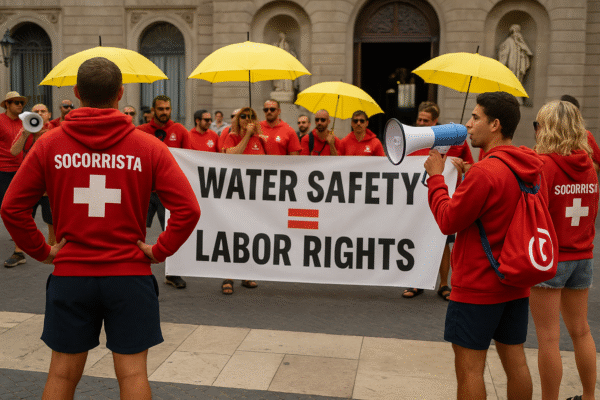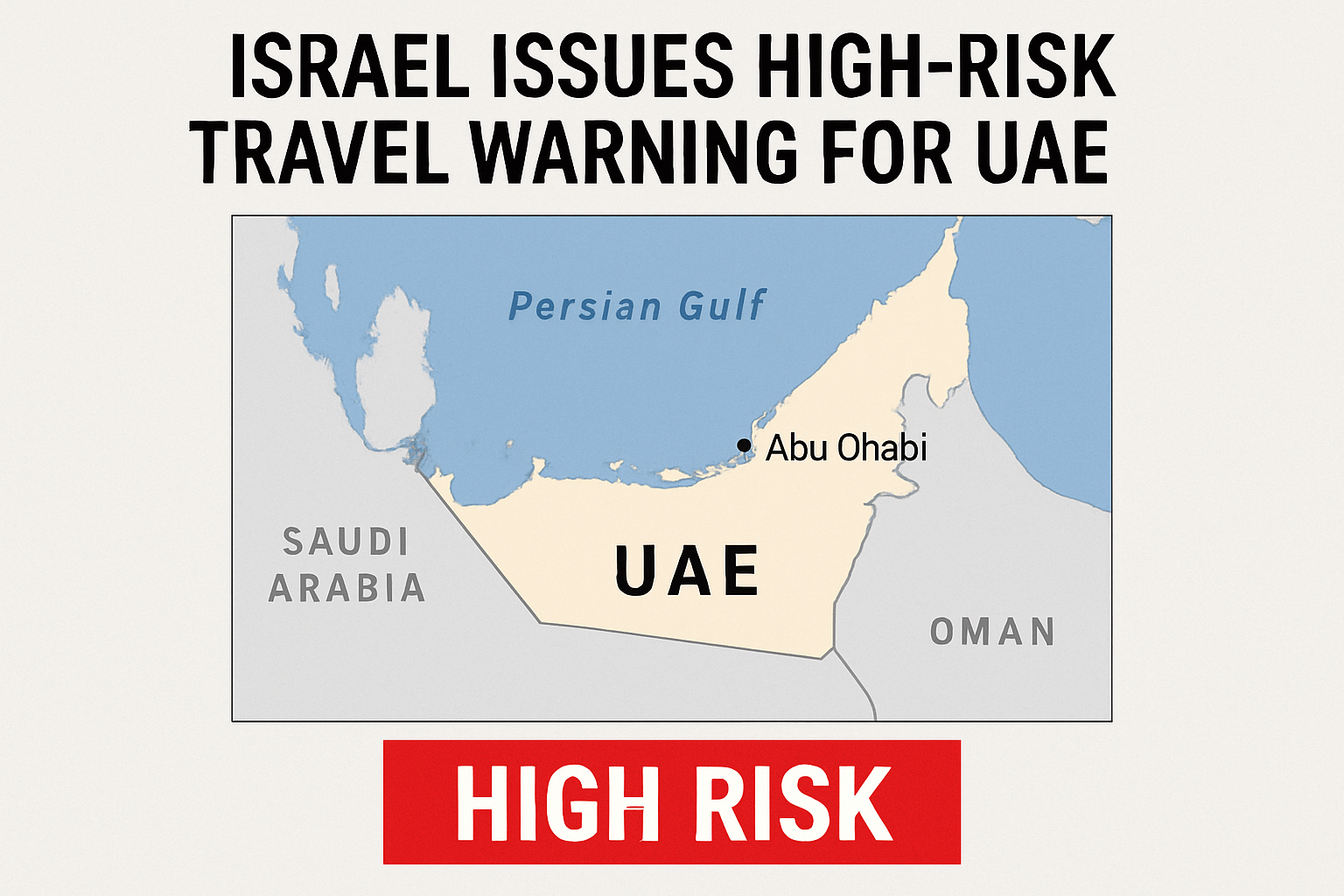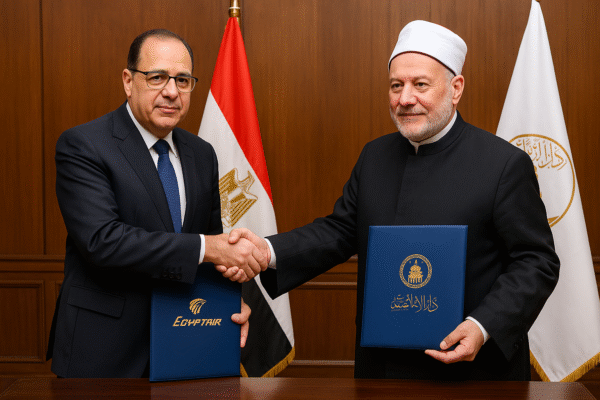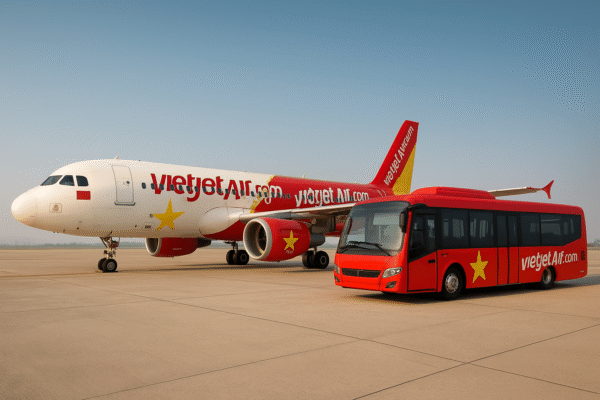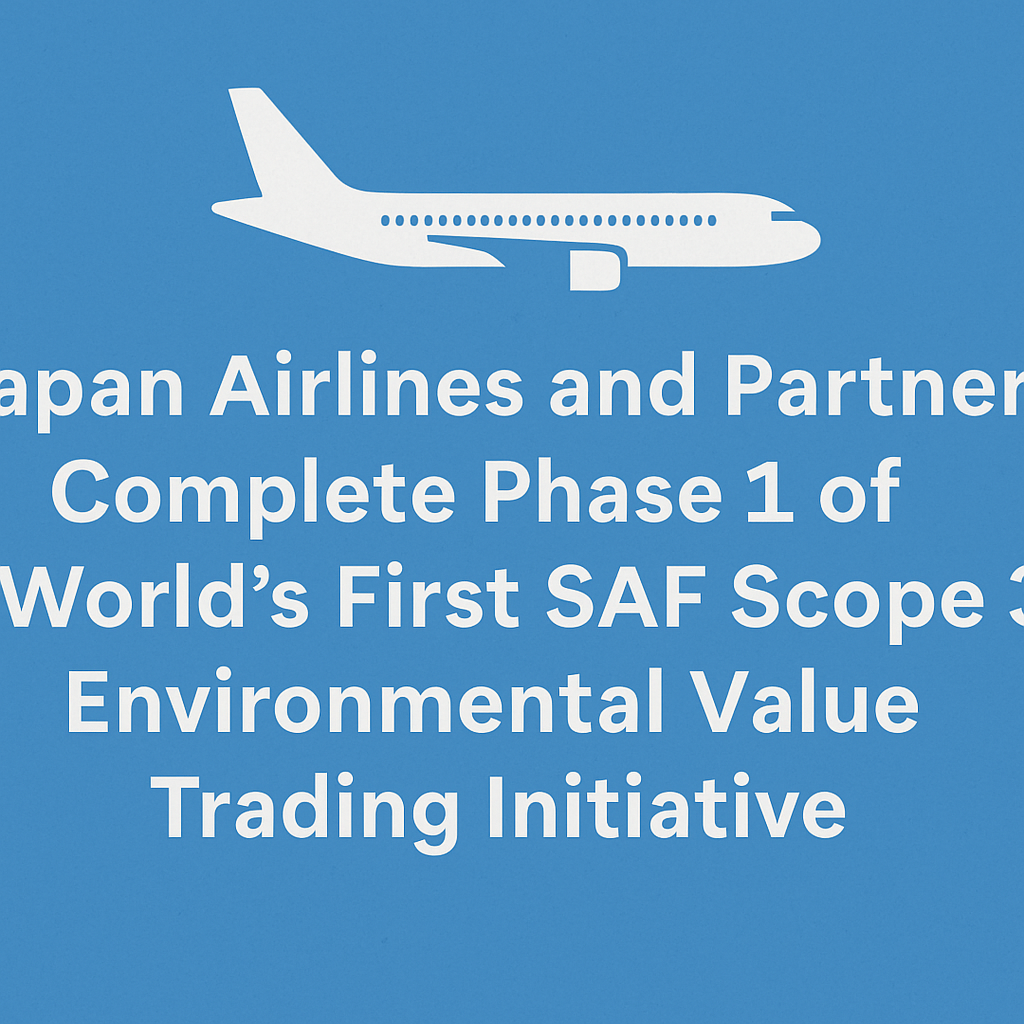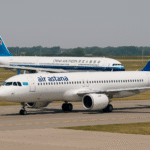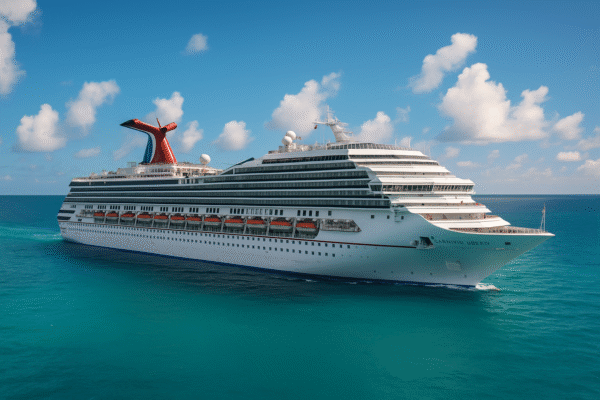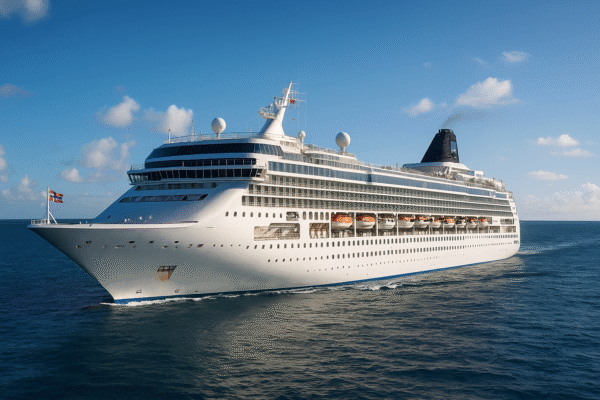Japan Airlines (JAL), ITOCHU Corporation, ENEOS Corporation, Narita International Airport Corporation, and other leading firms have successfully completed Phase 1 of the world’s first Scope 3 environmental value trading pilot aimed at boosting the use of Sustainable Aviation Fuel (SAF) in aviation.
Launched in August 2024, this eight-month demonstration aimed to verify that trading Scope 3 environmental value linked to SAF adoption can create economic incentives for companies to reduce indirect carbon emissions.
🔍 Key Outcomes from Phase 1 Demonstration
- A platform-based trading system was successfully implemented, enabling multiple companies to register, match, and execute Scope 3 environmental value trades through bilateral contracts.
- The trading process was verified for transparency and accuracy by third-party evaluator Nippon Kaiji Kyokai (ClassNK), ensuring no double-counting in asset transfers.
- Pilot participants included JAL, ITOCHU, ENEOS, Nippon Express, Mizuho Bank, Mizuho Research & Technologies, and Narita Airport Corporation (NAA), covering airlines, fuel suppliers, forwarders, financiers, and airport operators.
🤝 Industry Collaboration Driving Innovation
This initiative represents the first time that airlines, fuel suppliers, logistics providers, financial institutions, and airport operators have come together in a shared platform to trade environmental value tied to SAF usage. Each partner contributes unique roles:
- ITOCHU and ENEOS supply SAF and associated Scope 3 value
- JAL provides Scope 3 credits tied to SAF usage
- Nippon Express facilitates environmental value purchase for cargo logistics
- Mizuho Bank and Mizuho R&T support system design and verification
- NAA operates the core trading platform at Narita Airport
🌱 Japan’s Strategic Path to Aviation Decarbonization
This initiative aligns with Japan’s national SAF goals: 1% usage by FY2025, scaling to 10% by FY2030. ENEOS is pioneering domestic SAF sourcing for JAL, making it the first Japanese energy firm to supply SAF at scale.
International agencies like ICAO also emphasize the transition, with global aviation targets aiming for net-zero CO₂ emissions by 2050, and interim reductions of 15% from 2019 levels by 2024 .
🧾 What This Means for the Aviation Landscape
- Economic incentives created via Scope 3 trades help distribute the cost burden of SAF across the supply chain.
- Transparent ledger management ensures trust and verification for traded environmental assets.
- Platform scalability demonstrated, with successful bilateral trades now laying groundwork for wider participation.
- Coordination across sectors signals a new model for multilateral decarbonization efforts within aviation.
🚀 Phase 2 & Beyond: Scaling the Initiative
The group plans to expand Phase 2 by onboarding more companies, broadening awareness, and improving system efficiency in preparation for full-scale social implementation.
Additional goals include refining trade procedures, addressing early challenges, and building partnerships that can sustain the scheme beyond Japan.
In the second phase, trading systems may integrate with Japan’s broader national initiatives and sustainability targets for various industries.
🌏 Global Implications: Toward Greener Travel
This demonstration represents a pioneering model globally—one that connects SAF usage, carbon-value trading, and cross-sector collaboration. If replicated worldwide, Scope 3 trading could become a core mechanism for spreading SAF adoption in aviation and other high-emission industries.
European and Asian regulators are increasingly looking to SAF and carbon trading mechanisms to meet emissions commitments. Japan’s pilot may serve as a blueprint for international replication.
✈️ For Passengers & Airlines
- Travelers may soon see eco-friendlier flight options, with airlines passing on environmental credentials tied to SAF use.
- Airlines can offer corporate clients carbon-reduction certificates, like those under JAL’s “Corporate SAF Program” launched in April 2024, which helps companies report Scope 3 emission reductions from air travel.
- Investors and policymakers gain confidence in market-based mechanisms supporting decarbonization while preserving aviation’s economic viability.
📅 Summary Table
| Topic | Details |
|---|---|
| Phase 1 Duration | August 2024 – March 2025 |
| Participants | JAL, ITOCHU, ENEOS, NAA, Nippon Express, Mizuho Group |
| Core Objective | Set up Scope 3 trading platform for SAF-enabled credits |
| Key Milestones | Launch platform, execute trades, third-party validation |
| Phase 2 Plans | Expand participation and refine system for scale |
| National SAF Target | 1% by FY2025, 10% by FY2030 |
🧭 Conclusion: Aviation Sustainability Takes Flight
Phase 1 success confirms that Scope 3 environmental value trading is a viable market-based mechanism for accelerating Sustainable Aviation Fuel adoption across the aviation industry. As Phase 2 begins, project partners are poised to scale the initiative—with the potential to transform SAF from pilot concept into standard industry practice.
Japan’s leadership in decarbonizing aviation through collaborative platforms raises confidence that greener air travel is not only possible—but scalable, measurable, and economically viable. Environmental trading tied to fuel usage could soon shape travel, industry commitments, and global sustainability policy.
For more travel news like this, keep reading Global Travel Wire





